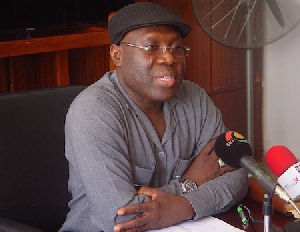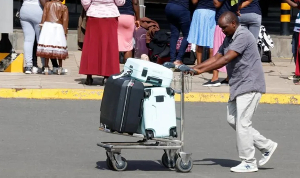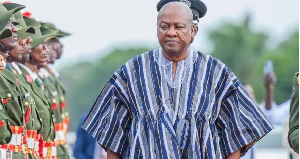The Bureau of National Investigations (BNI) is investigating some officials of the Ministry of Roads and Highways and its agencies for allegedly forming companies and bidding for execution of contracts.
The BNI has launched an investigation into the matter, following reports made to it by the executive of the Road Contractors Association.
The Minister of Roads and Highways, Alhaji Inusah Fuseini, said the officials concerned would be dealt with according to law, if found culpable.
Alhaji Inusah did not disclose the number of officers involved and their names, for security reasons.
Addressing the management meeting of the Department of Urban Roads (DUR) here in Bolgatanga, after inspection tours of roads in the Northern and the two Upper Regions, Alhaji Fuseini said, “It is unethical and a conflict of interest for the officials to be directly involved in bidding and actual execution of works."
“This is completely unacceptable, if a public servant wants to be a contractor, he or she should resign and go into the private sector,” he said.
The Minister also expressed concern about numerous cost variations of contracts awarded, in some instances, as much as 45 per cent of the initial cost, which he said had “resulted in huge cost overruns with serious implications on the already overheated budgets of roads and the Consolidated Fund.”
He said the cost variation meant that the officials did not do thorough work, adding that such a practice impugned on their credibility and allowed third parties to think otherwise.
“The ministry will expect that you improve on your design and estimating capacities to ensure value for money on all your projects,” he said.
“You should think through your projects from concept to execution so as to reduce negative aspects of cost overruns. Your road portfolio should contain projects that can be adequately supervised over the period for effective results,” the minister said.
Alhaji Fuseini said the monitoring and evaluation reports of the ministerial team had shown only a marginal improvement over the 2013 observations saying, “The final quality on some maintenance projects still indicates poor workmanship."
“A major contributory factor is from the poor supervision of works. Your staff in the regions are expected to exhibit a high sense of purpose and professionalism in ensuring that works are executed to contractual standards and specifications,” he said.
Alhaji Fuseini said in carrying out projects throughout the country, the officials need to be mindful of the fact that Ghanaians are discerning, and urged them to improve upon their project communications efforts in order that users and beneficiaries are constantly informed of progress of work, and also challenges of the projects and activities.
He said the ministry had noted the challenges that adversely affected the operations of regional offices included weak human capacity and the unavailability of requisite logistics to effectively manage the road network.
“These challenges, coupled with the delays in payment have contributed to the continuous deterioration of the road network as evidenced by the declining annual road condition mix indicators,” he said.
Alhaji Fuseini assured that the ministry would support them in developing innovative strategies to ensure that the effects of these challenges were reduced.
The Deputy Upper-East Regional Minister, Daniel Syme, lamented that the region had not benefited from its fair share of road projects, saying that most districts were not linked to the regional capital through a network of good roads.
Alhaji Abass Awulo, Director of the DUR, said the meeting was meant to assess their performance and strategise on the way forward.
General News of Monday, 18 August 2014
Source: The Ghanaian Times













